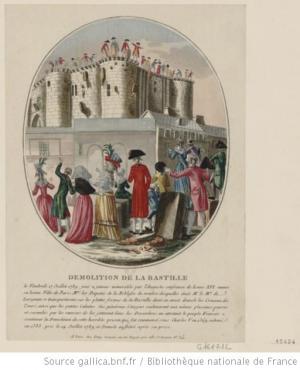The Sentimental Public: Emotion, Politics and the French Revolution

This project will explore fundamental questions concerning the role that emotions play in forging politically conscious communities able to advocate for their own interests by examining the taking of the Bastille in 1789, an event that marked the beginning of popular participation in the French Revolution. In studying this event and its aftermath, scholars have been interested in only one of these crowds: that which conquered the Bastille. The crowd of Parisians that visited the former prison has been ignored. Yet those who walked through the conquered fortress experienced strong emotions of surprise, joy and exaltation that made them feel for the first time that they were members of the nation, a political community that had just come into being. This project seeks to bring this crowd of men and women who reveled in their visits to the conquered prison back into view by examining the ways in which their expressions of emotion created a political community out of a disparate crowd. Questioning the ubiquitous reading of Jürgen Habermas’ model of the public sphere that limits emotion to a literary, but not political, public sphere, the project analyzes the role of emotion in defining the boundaries of the public, determining who is included and who excluded. Drawing upon the theoretical insights of Michel de Certeau, the project also develops the concept of emotional practices—public acts meant to convey states of emotion. This concept allows us to expand an analysis of the use of emotion in politics beyond statements of sentiment in order to explore the use of emotion among communities who did not leave direct written testimony. This project will explore the hypothesis that emotions have an important role in creating and maintaining a political community. Emotions must be considered alongside reason as integral to the political public sphere.